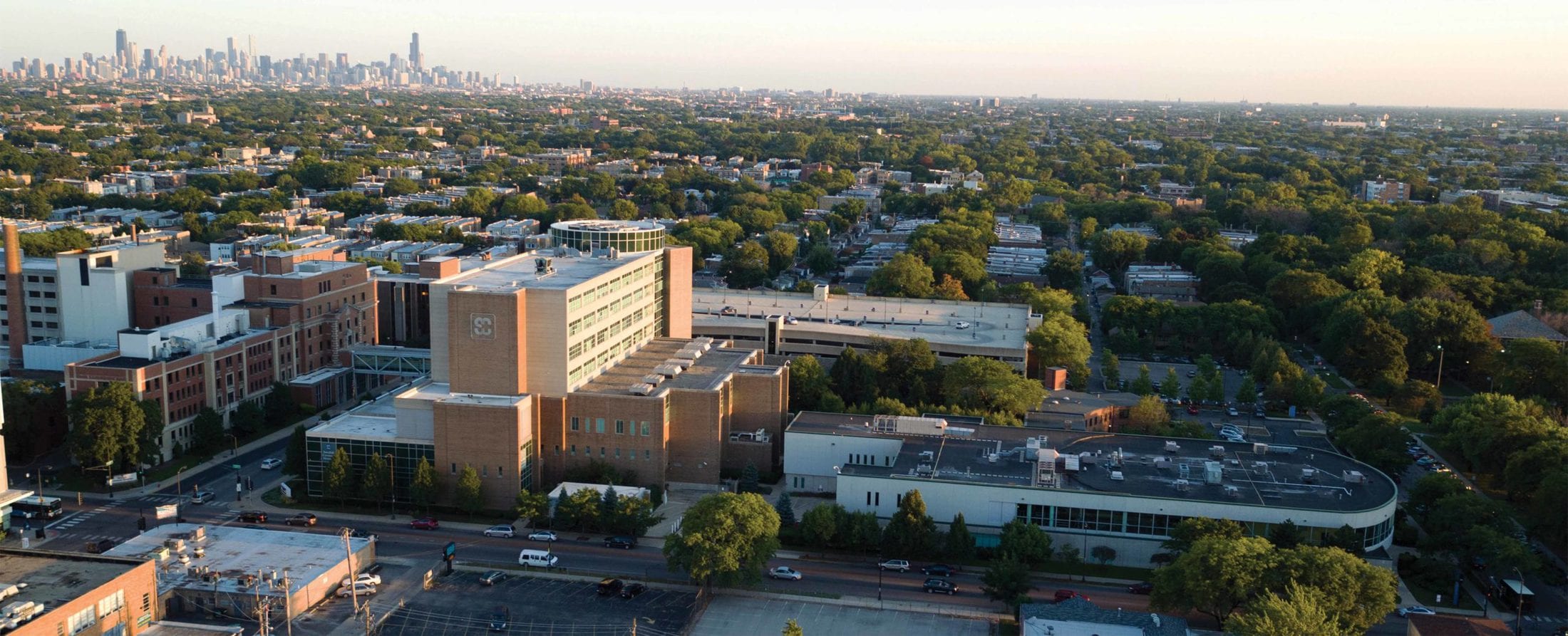
A New Shift for Swedish
Remembering the founding mission of Swedish Covenant Hospital
as it concludes its 133-year-old relationship with the Evangelical Covenant Church and
joins a large healthcare system in the Chicago area
by Stan Friedman | February 4, 2020
In 1885, at the dawn of the newly formed Swedish Mission Covenant Church, tens of thousands of people were streaming into Chicago. The influx of people brought increased prosperity, but many of the new residents were penniless, sick, victimized, and forgotten.
The members of the new church made it a priority to approve the founding of a home of mercy at their first Annual Meeting. The home opened less than a year later.
“The dedication of the institution on June 26 of that year provided an opportunity for a public outing and thousands of Chicago Mission Friends gathered in the rural setting to share in the festivities,” wrote Covenant historian Karl Olsson in By One Spirit. He cites a contemporary who wrote about the dedication: “It was a moving moment. The sick were carried out and were laid on stretchers or placed on chairs before the speaker’s rostrum. Tears welled up and sobs could be heard throughout the whole gathering, and a feeling of gratitude to God for the home prevailed in the hearts of all.”
The denomination purchased three acres that included a two-story brick building and stable next to unpaved Foster Avenue on the city’s North Side. They paid $5,500, plus $2,600 for remodeling and furnishings. The Home of Mercy served as a combination orphanage, home for the elderly, and hospital.
The medical staff developed a reputation for providing excellent care, and people started coming from other states. Admissions soared to 212 within two years.
The hospital was dedicated “to the glory of God, the service of suffering humanity—a monument to Christian charity.”
In 1898 the hospital added a school of nursing, which in the following 71 years attracted students from Covenant churches throughout the denomination. In the late 1960s, the program transitioned to North Park College.
With the increased demand and growing services, the denomination decided to construct a hospital building. In 1902, delegates to the Annual Meeting again demonstrated their commitment to benevolence. After considering other sites, they voted to build on the grounds shared with the home.
The two-and-a-half-story hospital included 81 beds and was built at a cost of $26,000. It was dedicated in May 1903 “to the glory of God, the service of suffering humanity—a monument to Christian charity.”
A hospital publication described the location as “beautiful, charming, and inviting,” where the patient is “removed from the noise, which city life and railway traffic causes. No noise, no blowing of steam whistles, whether of steamboat, locomotive, or factories disquiets the sensitive and sick patient.” During the summer, convalescing patients could “enjoy the fragrance of flower beds, as well as surrounding forest and field, while sunlight and song of birds charm the eye and ear.”
The number of patients continued to increase. When a new wing was built for $501,000 and dedicated in October 1928, the hospital was treating more than 5,000 patients annually.
The following October, the stock market crashed, and the hospital, which had an indebtedness of $453,000, barely survived. But it continued to serve the community, including patients who were unable to pay for treatment.
Today, traffic is heavy along Foster Avenue. Twenty thousand people live within a square mile of the hospital, an area that is among the most ethnically diverse in the country, according to government data. Swedish Covenant has expanded multiple times over, now counting 312 beds and numerous added services. Its emergency room treats 52,000 people annually.
Financial realities for hospitals are changing, too. “The reality is there are fewer stand-alone hospitals,” says Roger Oxendale, president of Covenant Ministries of Benevolence. “To partner with another health system is a significant benefit to the community. NorthShore has made a commitment to invest in the neighborhood in which the hospital sits.”
That is why the Covenant entered into an agreement last year for Swedish Covenant Health to join NorthShore University HealthSystem.
Swedish Covenant Health includes the hospital and its physicians’ practice, Swedish Covenant Medical Group, as well as Galter LifeCenter, Swedish Covenant Hospital Foundation, and managed care organization Swedish Covenant Physician Partners.
The Bible in the chapel at Swedish Covenant Hospital is so frequently opened to Psalm 23 that the page is taped and worn. “I think it is a comforting favorite,” says Melanie Tornquist, director of pastoral care at the hospital. “The carpet is getting worn as well, in a path from the door to the Bible, as so many staff members start and end their shift by coming in to pray.”
NorthShore’s system includes four Chicagoland hospitals as well as local centers throughout the area. In 2018, Swedish had $27.7 million in net income, according to Modern Healthcare Metrics. NorthShore’s net income was $164.9 million. Together, both Swedish Covenant Health and NorthShore have more than 12,000 employees, including about 3,000 doctors. Each will continue their medical and ambulatory networks.
Financial terms were not disclosed, but as part of the agreement, NorthShore will pay down Swedish’s pension obligations, and fund capital improvements to the hospital campus.
“The agreement will help assure the longevity of the hospital,” says Scott Hanson, vice-president of finance for Covenant Ministries of Benevolence.
NorthShore said it will “make a significant philanthropic contribution” to the hospital’s foundation, which has helped fund community programs that address issues such as violence prevention and homelessness.
The transaction also will provide funds to Covenant Ministries of Benevolence to support its ongling mission and that of the Evangelical Covenant Church, said Oxendale. The hospital had been seeking to partner with other health systems, and continued Covenant connections were essential to any potential deal.
Although the hospital will no longer be part of the Evangelical Covenant Church, it will continue the ongoing clinical nursing experiences and practicums for students at North Park University as well as the chaplaincy training program with North Park Theological Seminary.
Melanie Tornquist, ordained Covenant minister and director of pastoral care at Swedish, recalls how influential the hospital has been in sharing the gospel across the world. “Throughout our history, we’ve combined excellent medical care, spiritual care, and compassion,” she says. “I think of all the pastors and missionaries who did their training here or served here, as well as nurses and other medical people. Their experiences at Swedish helped form them and influenced their ministry and caring. People from all over the country came here to go to nursing school.”
In 2020, the influx of people into the community continues. More than 40 languages are spoken among patients and staff members. Every day, they care for longtime residents as well as newly arrived refugees and immigrants. Reflecting its founders’ original commitment to serve the poor with excellent care, SCH is considered a safety-net hospital, one that serves a large number of Medicaid and uninsured patients.
“There are a lot of needs here,” Tornquist said, “but we are committed to giving compassionate care.”
Although no longer operated under its former parent, Covenant Ministries of Benevolence, the hospital will continue to serve its founding mission through its commitment to patients, the community, and staff. Many there see their work as ministry, and welcome the church’s continued prayers through this transition and into the future.













